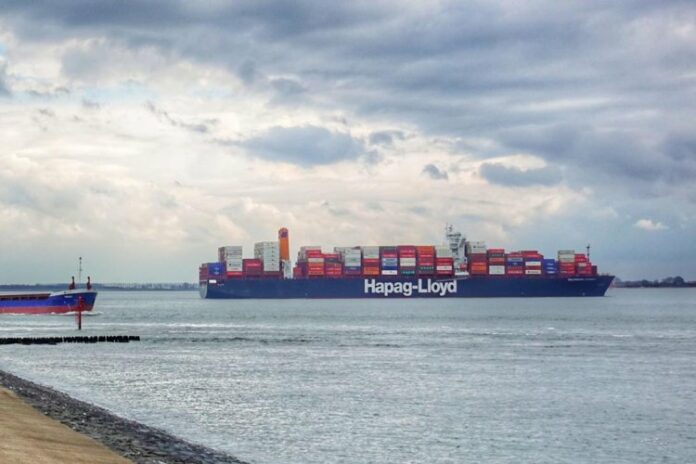As an initial step, Hapag-Lloyd will ship 18,000 TEU of DHL’s volume using advanced biofuels, which is equivalent to a reduction of 14,000 tons of Well-to-Wake CO2-emisisons.
The two companies share the vision of decarbonizing container shipping and logistics. With their project, they demonstrate the scalability of sustainable transport solutions and the relevance of sustainable fuels in today’s market. As pioneers, both DHL and Hapag-Lloyd are pledging for a uniform industry standard, following the insetting approach.
Dominique von Orelli, Global Head of Ocean Freight at DHL Global Forwarding, says:
“The decarbonization of heavy transport is an important challenge that the entire industry needs to rethink. That is why we are very proud to have found a partner in Hapag-Lloyd that shares the same ambitions for a climate-neutral world as anchored in the Paris Agreement. Together we want to pave the way for Book & Claim and insetting mechanisms to make it easier for shippers to use sustainable fuels.”
Advanced biofuels are based on raw biological materials, such as used cooking oil and other waste products. This material is used to manufacture a fatty acid methyl ester (FAME), which is then mixed with varying proportions of low sulphur fuel oil. Compared to standard fuels, this pure biofuel product lowers greenhouse gas emissions by more than 80 percent.
Danny Smolders, Managing Director Global Sales at Hapag-Lloyd, says:
“Biofuel will play a significant role in the upcoming years on our path to becoming net-zero carbon by 2045. This project will bring us a step closer to offering our customers biofuel-powered transportation as a commercial product and thereby to supporting them in their efforts to reduce their carbon footprint.”
Hapag-Lloyd has been testing advanced biofuels since 2020 and offers a carbon reduced transport solution utilizing biofuel blends instead of traditional fossil marine fuel oil (MFO). The resulting reduction in carbon dioxide equivalent (CO2e) emissions can be offered as a “Green Product” on a Twenty-Foot Equivalent Unit (TEU) basis and thereby transferred to customers in order to help reduce their Scope 3 emissions.



